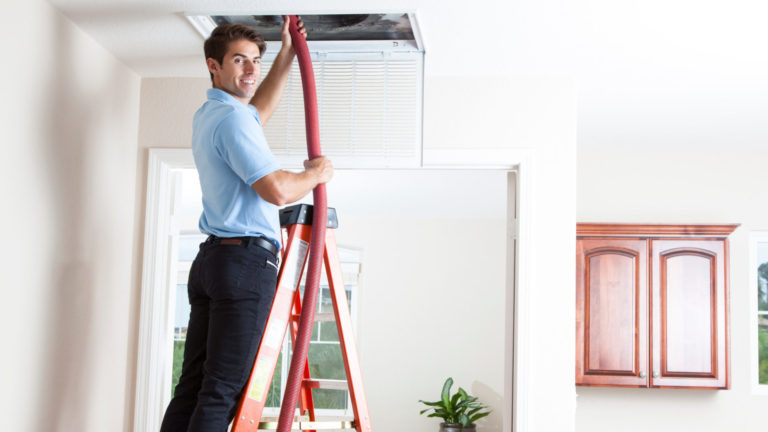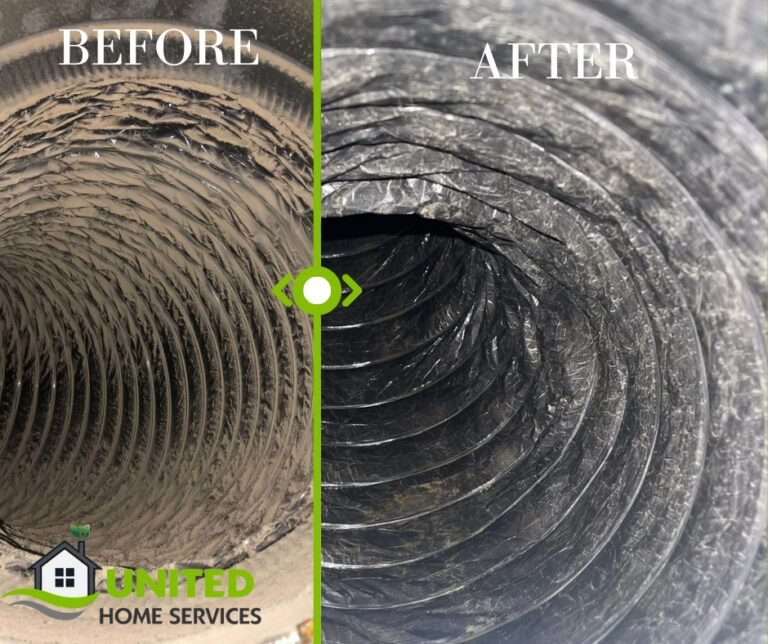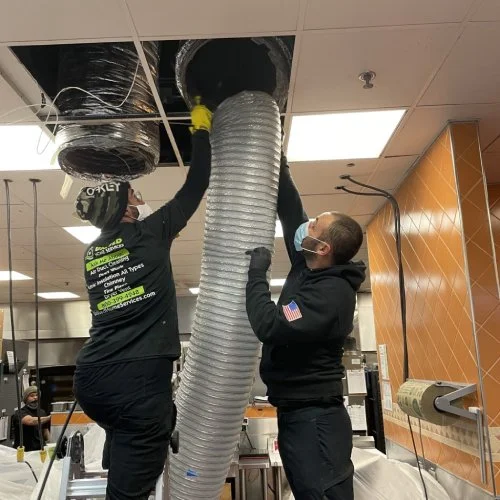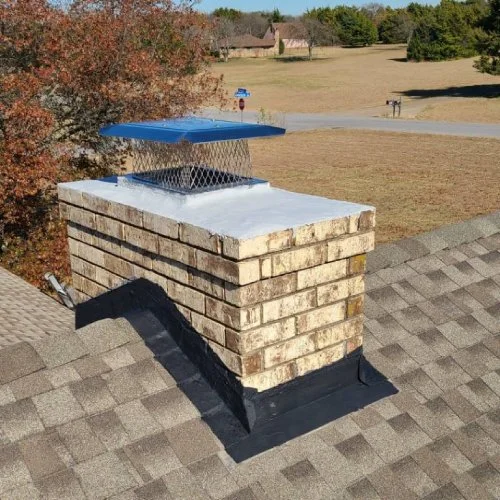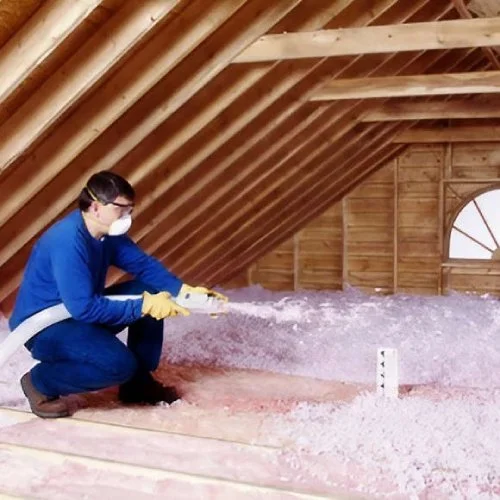When something breaks down in your home, you generally have two choices. You can hire a handyman or hire a licensed professional to get it fixed. Whom you choose depends on the appliance or system that needs to be repaired. And, it also depends on the level of expertise needed to repair it.
While a handyman might be able to replace a doorknob or add some shelves in the laundry, they cannot inspect, install, or repair your HVAC system. This is because your HVAC system is extremely complex. And, it can only be handled by professionals with specific expertise and training. This is why you should always call a NADCA-certified professional for all your HVAC-related needs.
What exactly is a NADCA certification? How does a NADCA-certified technician differ from a handyman? Let us take a close look at the issues in this post.
What is NADCA Certification?
It is a certification issued by the National Air Duct Cleaners Association. That is a non-profit organization that sets the standards for air duct inspection, cleaning, and maintenance. It is internationally recognized and is considered the gold standard for HVAC repair and maintenance.
How Does a NADCA Certified Technician Differ from a Handyman?
· A handyman is not licensed and does not have the know-how needed for complicated projects like air duct cleaning and maintenance. A NADCA-approved technician, on the other hand, is licensed and has the expertise to handle all your HVAC-related needs.
· A handyman does not have to pass any exam, since they are not a professional. A NADCA-certified technician, on the other hand, can obtain their certification only after passing an exam.
· A handyman is not required to update their knowledge or improve their skill set. NADCA-approved technician, however, needs to constantly update their knowledge and stay updated about the latest trends in the industry. Technicians also need to expand their skill set to maintain their certification.
· A handyman is not required to adhere to any kind of standards. A NADCA-approved technician, on the contrary, is expected to adhere to the exacting standards set by the organization. These include proper air duct repair, cleaning, and maintenance. Technicians with NADCA certification are also required to adhere to the organization’s code of ethics.
· A handyman may or may not have liability insurance. A NADCA-certified technician is required to have liability insurance (usually provided by the company they work for).
As you can see, hiring a NADCA-approved professional has several advantages over hiring a handyman – especially when it comes to installing or repairing HVAC systems. Correlating with this, if and when your air duct needs to be inspected, cleaned, or repaired, make sure you hire a technician with NADCA certification.
Looking for NADCA Certified Professionals to Clean Your Air Duct?
United Home Services is proud to say that all our HVAC technicians are NADCA-certified and adhere to the highest standards set by the organization. They are licensed, insured, and bonded and have the necessary expertise to install, inspect, clean, repair, and replace all kinds of HVAC systems.
To get your air duct services from a NADCA-certified professional, call us today at 844-415-1543 or contact us online and schedule an air duct inspection appointment.
- Air Duct Cleaning in Addison, TX
- Air Duct Cleaning in Allen, TX
- Air Duct Cleaning in Anna, TX
- Air Duct Cleaning in Arlington, TX
- Air Duct Cleaning in Balch Springs, TX
- Air Duct Cleaning in Bedford, TX
- Air Duct Cleaning in Benbrook, TX
- Air Duct Cleaning in Blue Mound, TX
- Air Duct Cleaning in Blue Ridge, TX
- Air Duct Cleaning in Carrollton, TX
- Air Duct Cleaning in Cedar Hill, TX
- Air Duct Cleaning in Colleyville, TX
- Air Duct Cleaning in Copeville, TX
- Air Duct Cleaning in Coppell, TX
- Air Duct Cleaning in Crowley, TX
- Air Duct Cleaning in Dallas, TX
- Air Duct Cleaning in Dalworthington Gardens, TX
- Air Duct Cleaning in DeSoto, TX
- Air Duct Cleaning in Duncanville, TX
- Air Duct Cleaning in Euless, TX
- Air Duct Cleaning in Everman, TX
- Air Duct Cleaning in Fairview, TX
- Air Duct Cleaning in Farmers Branch, TX
- Air Duct Cleaning in Farmersville, TX
- Air Duct Cleaning in Forest Hill, TX
- Air Duct Cleaning in Fort Worth, TX
- Air Duct Cleaning in Frisco, TX
- Air Duct Cleaning in Garland, TX
- Air Duct Cleaning in Glenn Heights, TX
- Air Duct Cleaning in Grand Prairie, TX
- Air Duct Cleaning in Grapevine, TX
- Air Duct Cleaning in Haltom City, TX
- Air Duct Cleaning in Haslet, TX
- Air Duct Cleaning in Hurst, TX
- Air Duct Cleaning in Hutchins, TX
- Air Duct Cleaning in Irving, TX
- Air Duct Cleaning in Josephine, TX
- Air Duct Cleaning in Justin, TX
- Air Duct Cleaning in Keller, TX
- Air Duct Cleaning in Kennedale, TX
- Air Duct Cleaning in Lancaster, TX
- Air Duct Cleaning in Mansfield, TX
- Air Duct Cleaning in McKinney, TX
- Air Duct Cleaning in Melissa, TX
- Air Duct Cleaning in Mesquite, TX
- Air Duct Cleaning in Murphy, TX
- Air Duct Cleaning in North Richland Hills, TX
- Air Duct Cleaning in Plano, TX
- Air Duct Cleaning in Princeton, TX
- Air Duct Cleaning in Prosper, TX
- Air Duct Cleaning in Red Oak, TX
- Air Duct Cleaning in Rendon, TX
- Air Duct Cleaning in Richardson, TX
- Air Duct Cleaning in Rowlett, TX
- Air Duct Cleaning in Sachse, TX
- Air Duct Cleaning in Saginaw, TX
- Air Duct Cleaning in Southlake, TX
- Air Duct Cleaning in University Park, TX
- Air Duct Cleaning in Watauga, TX
- Air Duct Cleaning in White Settlement, TX
- Air Duct Cleaning in Wylie, TX

